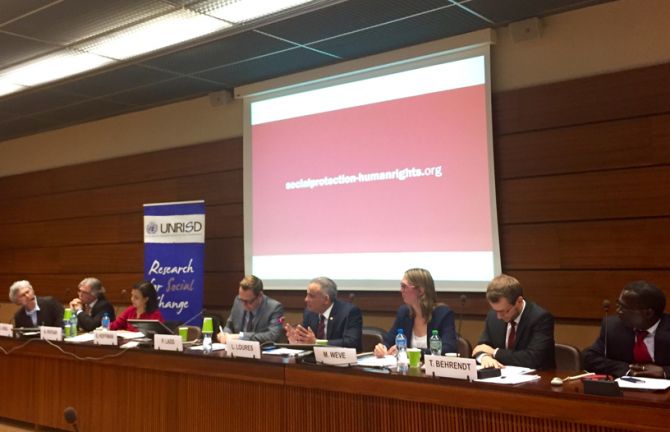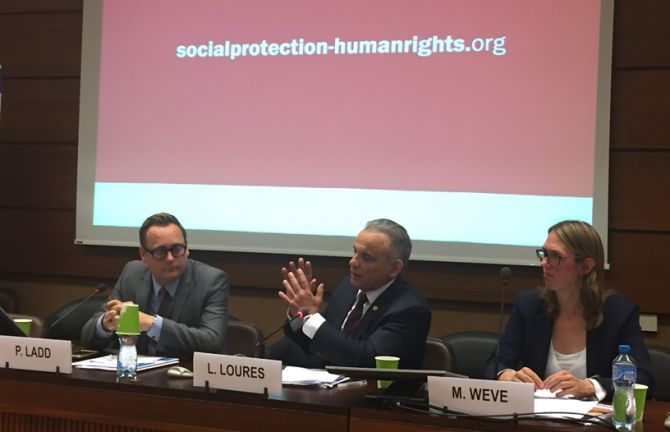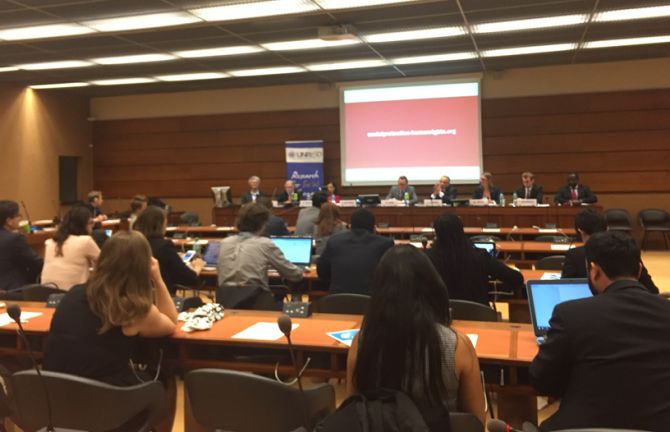



Update
Addressing the social and structural drivers of HIV
27 May 2016
27 May 2016 27 May 2016Increasing the use of social protection services towards ending the AIDS epidemic was the topic of discussion at an event held on 24 May on the margins of the 69th session of the World Health Assembly, held in Geneva, Switzerland.
Organized by UNAIDS, the United Nations Research Institute for Social Development and the International Labour Organization (ILO), the event brought together senior government, United Nations and civil society representatives to exchange views on the importance of social protection services in HIV prevention, treatment and care.
Speaking at the session, Luiz Loures, Deputy Executive Director of UNAIDS, said that 2016 is a critical year in the mission to end the AIDS epidemic by 2030. That goal cannot be met, he warned, unless social and structural drivers of HIV are addressed.
He added that people living with, at risk and most affected by HIV are vulnerable and at higher risk of HIV infection because of the social determinants of HIV—poverty, inequality and discrimination. “Social protection—ranging from social insurance to social assistance—is a game-changer that we must invest in to end the AIDS epidemic,” Mr Loures said.
Paul Ladd, UNRISD Director, said, “Let us make the next five years the years when we ensure that every person living with, at risk of and most affected by HIV in need of social protection is able to access it. Only then are we going to be on course to end AIDS by 2030.”
Thorsten Behrendt, ILO Health Policy Specialist, emphasized that, to end the AIDS epidemic by 2030, it will be necessary to provide both access to needed services and medicine, as well as basic income security. Moving from charity to rights will be crucial and requires the development and implementation of inclusive legislation to respond to poverty, exclusion and stigmatization, and at the same time empower people living with, at risk of and affected by HIV.
Social protection can also empower communities left behind, such as older people, to achieve a life of dignity free from poverty, said Stefan Hofmann, Director of Kwa Wazee, Switzerland. He added that, for programmes to succeed, it is important to take into consideration the family and community system on which most vulnerable people depend.
Martine Weve, Senior Policy Advisor on Livelihoods and HIV at STOP AIDS Now!, emphasized the key role support groups of people living with HIV have in increasing access to social protection services for their members.
According to Charles King, Chief Executive Officer of Housing Works, a dollar spent on HIV treatment that does not lead to viral suppression is a dollar wasted. He said subsidized housing for homeless people and people who use drugs are critical for achieving viral suppression.
Archana Patkar, of the Water Supply and Sanitation Collaborative Council, said people living with HIV who lack access to clean water and sanitation are more vulnerable to diarrheal diseases linked to morbidity and mortality. Removing stigma and discrimination and ensuring they have adequate access is key to saving lives.



